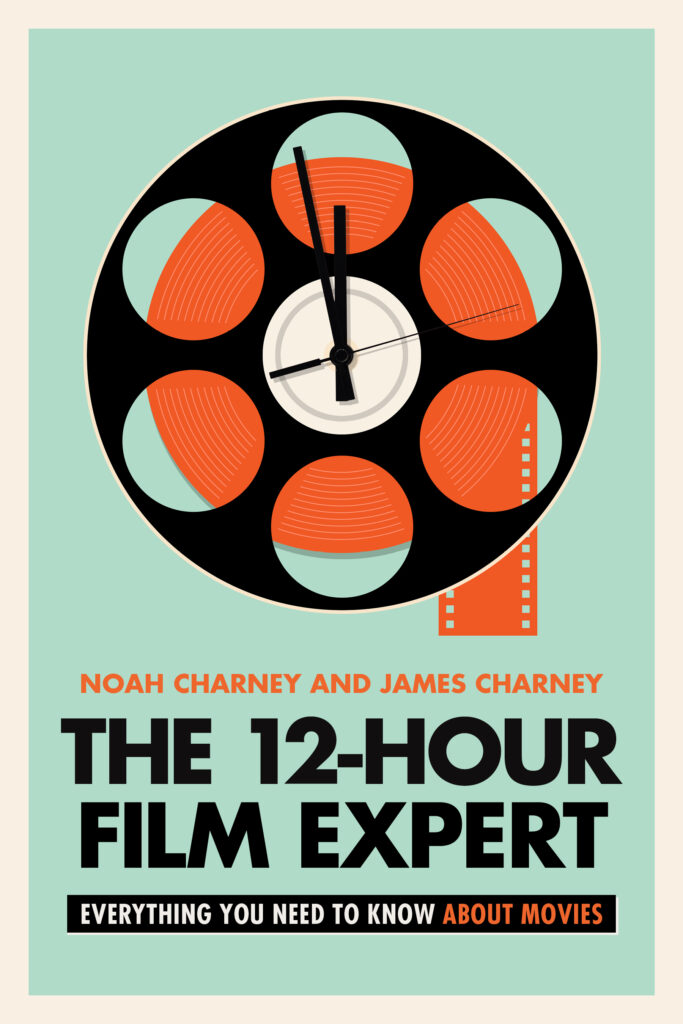Want To Become a Film ‘Expert’? Have Half a Day To Spare? Read On
The authors of ‘The 12-Hour Film Expert’ write about movies ‘that seem the most universally applicable, and most important to the story of film.’ What’s kind of amazing is how far-ranging and particular their non-encyclopedic book is.

How long does it take to read a book that comes in at a smidge less than 250 pages? The father-and-son team of James and Noah Charney want you to know that their cinematic primer, “The 12-Hour Film Expert; Everything You Need to Know about Movies,” will clock in at the appointed time. At which point, you’ll be ready to win friends and influence people with your knowledge about critical flicker fusion. “About what?” you might ask.
Critical flicker fusion is the rate at which a series of still pictures creates a sense of fluid movement — that is to say, 50 images per second. The very earliest of films sometimes went as slow as 12 frames a second. As a result, the movie would flicker — by which the term “flicks” originated. When Messrs. Charney explain how contemporary films get away with moving at a mere 24 frames a second, well, the science and machinery of perception get a mite particular.
Yet it’s never confusing. Within the first 10 or so pages of “The 12-Hour Film Expert,” the reader realizes that this father-and-son team not only considers writing clearly a virtue, but they put that belief into practice. The elder Charney was an English major — back “when you could do that as a pre-med student” — who then became a practicing psychiatrist. Charney the younger is an art historian with an abiding interest in “the world’s best country,” Slovenia. They’re a learned, unpretentious duo.
I mean, we’re talking about writers who rope in Aristotle for their analysis of an anything-for-a-laugh venture like “Airplane!” and do so without straining or showing off. “The 12-Hour Film Expert” is like that, a book that doesn’t condescend to the general audience for which it is intended.

Messrs. Charney chose to write about movies “that seem the most universally applicable, and most important to the story of film.” What’s kind of amazing is how far-ranging and particular their non-encyclopedic book is. Even those who think they know a thing or two about movies will learn a thing or two more.
Messrs. Charney dole out factoids by way of properties around which the critical consensus has been codified. This isn’t to say they don’t have opinions: “There is,” the authors write, “no doubt that Citizen Kane is a masterpiece and a ‘great film.’ But is it a good film?” Citing opinions from authorities as diverse as author Jorge Luis Borges and Bill Nye the Science Guy, Messrs. Charney conclude that Orson Welles’s seminal picture is “a rather cold exercise … we just don’t love it.”
“The 12-Hour Film Expert” begins with an overview of how the movies were created, detailing Thomas Edison’s failure of narrative imagination, D. W. Griffith’s misapplied cinematic gifts, and the technical innovations of George Méliès. The chapters on silent films and “Classic Hollywood” highlight the authors’ knack for informed expedience. Their coverage of genres — everything from the Western to superhero movies — is similarly compact in the analysis of attributes and distinctions. Think, for a moment, about what it might be that differentiates a caper from a heist picture. Messrs. Charney cite it as the air of danger. In the former it is diminished; in the latter, dominant. Interesting.
A section titled “British versus American” details the signal differences of national cinema by contrasting Robert Wise’s “The Haunting” (1963) with the 1999 version by director Jan de Bont. Across the pond, our authors argue, filmmakers are “renowned for … subtle storytelling, rich character development and understated performances.” Americans, don’t you know, “celebrate the pursuit of success, reflecting … ambition, self-determination, and the belief in endless possibilities.” As armchair sociology, this is more spot-on than not and is posited with a notable lack of guile.
“The 12-Hour Film Expert” has its errors — Dr. Frankenstein’s assistant Igor appeared in “Son of Frankenstein” (1939) and not, as Messrs. Charney note, James Whale’s 1931 version of the Mary Shelley novel — but it is also peppered with curious byways, including those devoted to “joyous violence,” “musicals that just don’t work,” and how the forbidding pleasures of art house cinema are linked to, of all people, a Surrealist painter, Rene Magritte. A good book provides the leeway to contest its premises. In that regard, the authors manage a poke or two in the right direction.

